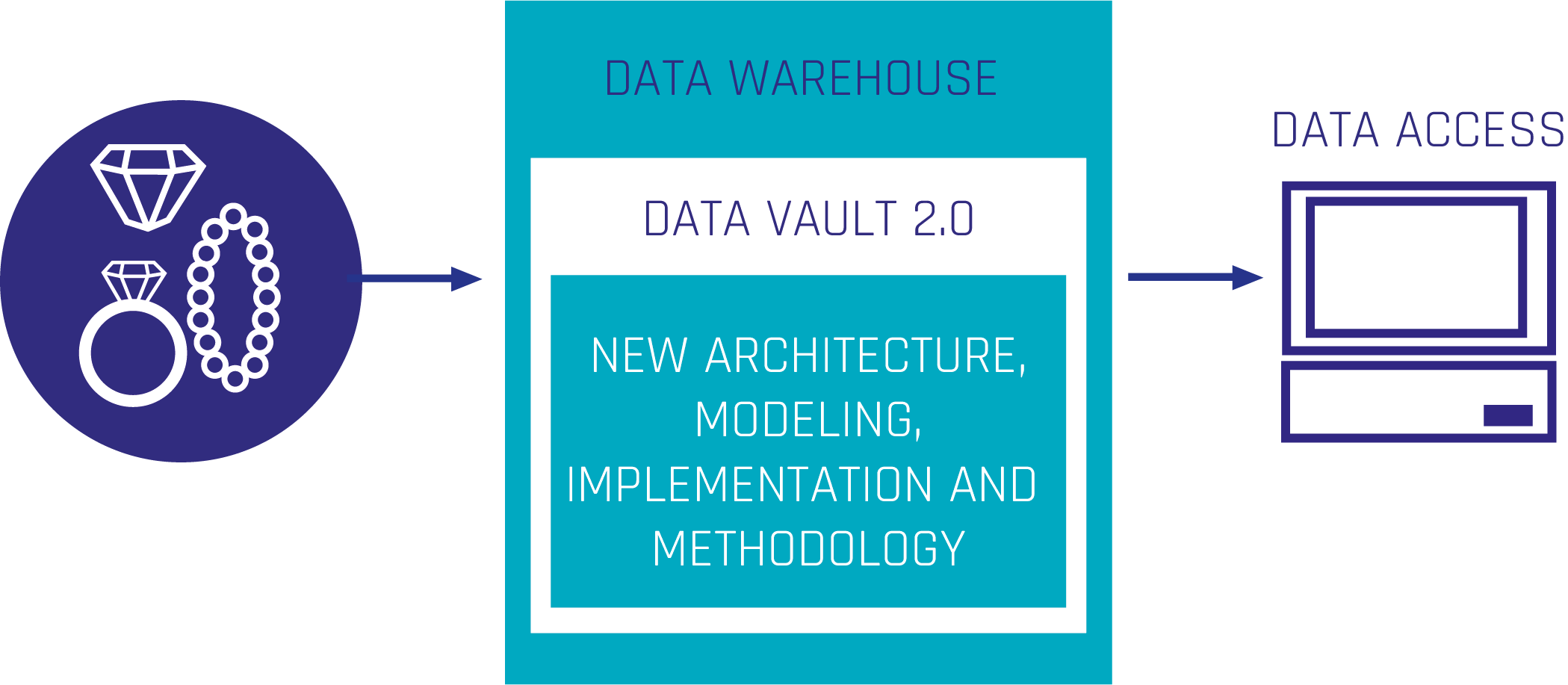As one of the leading jewelry companies in Germany, the company has lived up to its claim to inspire, excite and give pleasure – with passion and innovation.
About the Client
Problem Statement
- Inconsistency of the unrecorded data between the P&L from the SAP system and the central DWH
- Different departments did not work with data from the data warehouse in a controlled environment, instead working with homegrown solutions that were inconsistent within the data
- New data implementations and provision requirements are slow and difficult to implement
The Challenge
- Enable the use of historical data
- Complete implementation of the existing model in order to subsequently make the data available in the information provisioning process
- Confirm if Data Vault 2.0 is applicable
- Reduce the number of power users have direct access to the database via SQL, which on the one hand impaired the performance of the DWH and made reports more prone to error

The Solution
- During the 3-day review and workshop, the situational advantages of Data Vault 2.0 were explained and a model of the Raw Data Vault and parts of the Business Vault were modeled
- Solutions were built when sending reports, limits were set to control access to the BI area and power users
- Reports were sent to “collection points” at regular intervals
- Separation of raw data through business logics were customized with the data being placed into the Data Vault 2.0 architecture
- Direct access to the database was reduced to a manageable amount
Tangible Results for the Client
- Development of a migration strategy for the existing data warehouse to the new data warehouse was created
- The source systems were completely detached from the data warehouse infrastructure so the operational transactions were not affected by the data warehouse
- Power users were given the ability to develop their own solutions in a controlled environment
Technologies used
- SQL-Server 2016 (core data warehouse)
- SSIS (ETL)
- Oracle DB2 for the source system M3 (materials management)
- SQP (source system)
- IBM Cognos BI (v. 11.012) and TM1 with approximately 30-40 users
- Microsoft Power BI

Kilian Grünhagen
Senior Consultant
Phone: +49 511 87989342
Mobile: +49 175 2589365
Free Initial Consultation